Thursday, August 8th 2019

2nd Gen AMD EPYC Processors Set New Standard for the Modern Datacenter
At a launch event today, AMD was joined by an expansive ecosystem of datacenter partners and customers to introduce the 2nd Generation AMD EPYC family of processors that deliver performance leadership across a broad number of enterprise, cloud and high-performance computing (HPC) workloads. 2nd Gen AMD EPYC processors feature up to 64 "Zen 2" cores in leading-edge 7 nm process technology to deliver record-setting performance while helping reduce total cost of ownership (TCO) by up to 50% across numerous workloads. At the event, Google and Twitter announced new 2nd Gen AMD EPYC processor deployments and HPE and Lenovo announced immediate availability of new platforms.
"Today, we set a new standard for the modern datacenter with the launch of our 2nd Gen AMD EPYC processors that deliver record-setting performance and significantly lower total cost of ownership across a broad set of workloads," said Dr. Lisa Su, president and CEO, AMD. "Adoption of our new leadership server processors is accelerating with multiple new enterprise, cloud and HPC customers choosing EPYC processors to meet their most demanding server computing needs."2nd Gen EPYC Processors Expand the AMD Datacenter Customer and Partner Ecosystem
At the launch event, several customers and partners joined AMD on stage to discuss new AMD EPYC processor offerings:
Designed for Modern Workloads: Enterprise, Cloud and HPC
Second Gen AMD EPYC processors are specifically designed for modern datacenter workloads, providing customers an ideal combination of features to help unlock performance and redefine economics in virtualization, cloud, HPC and enterprise applications.
For the enterprise datacenter, 2nd Gen AMD EPYC processors offer up to 83% better Java application performance, up to 43% better SAP SD 2 Tier performance than the competition and provide world record performance on Real Time Analytics with Hadoop.
For modern cloud and virtualization workloads, 2nd Gen AMD EPYC processors deliver world record virtualization performance that redefines datacenter economics.
For HPC, 2nd Gen AMD EPYC processors offer an unmatched combination of record-setting floating point performance and the most DRAM memory and I/O bandwidth in its class to supercharge HPC workloads, including up to 2x better performance in computational fluid dynamics and up to 72% higher performance structural analysis.
AMD Design Innovation Brings Breakthrough Architecture for the Datacenter
The 2nd Gen AMD EPYC processor combines leadership performance, architecture and security features to meet the most demanding challenges facing the datacenter. Highlights of the AMD EPYC 7002 generation processor family include:
The AMD EPYC ecosystem continues to grow with more than 60 partners supporting the launch on day one. The broad partner ecosystem including ODMs like Gigabyte and QCT, IHVs like Broadcom, Micron and Xilinx, and broad operating system support including Microsoft and multiple Linux distributions. For Linux Canonical, RedHat and SUSE collaborated with AMD to test and validate solutions based on the 2nd Gen AMD EPYC processors for a wide range of datacenter use cases. This validation helped the 2nd Gen AMD EPYC processor achieve more than 2X platforms in development compared to the 1st Gen EPYC processors.
You can read more about the expanding AMD EPYC ecosystem and the 2nd Gen AMD EPYC processor here at the AMD blog.
The 2nd Gen AMD EPYC processor-based systems are available now from the AMD EPYC ecosystem partners.
"Today, we set a new standard for the modern datacenter with the launch of our 2nd Gen AMD EPYC processors that deliver record-setting performance and significantly lower total cost of ownership across a broad set of workloads," said Dr. Lisa Su, president and CEO, AMD. "Adoption of our new leadership server processors is accelerating with multiple new enterprise, cloud and HPC customers choosing EPYC processors to meet their most demanding server computing needs."2nd Gen EPYC Processors Expand the AMD Datacenter Customer and Partner Ecosystem
At the launch event, several customers and partners joined AMD on stage to discuss new AMD EPYC processor offerings:
- Google announced it has deployed 2nd Gen AMD EPYC processors in its internal infrastructure production datacenter environment and in late 2019 will support new general-purpose machines powered by 2nd Gen AMD EPYC processors on Google Cloud Compute Engine as well;
- Twitter announced it will deploy 2nd Gen AMD EPYC processors across its datacenter infrastructure later this year, reducing TCO by 25%;
- Microsoft announced the preview of new Azure virtual machines for general purpose applications, as well as limited previews of cloud-based remote desktops and HPC workloads based on 2nd Gen AMD EPYC processors today;
- HPE announced continued support of the AMD EPYC processor family with plans to triple their AMD-based portfolio with a broad range of 2nd Gen AMD EPYC processor-based systems, including the HPE ProLiant DL385 and HPE ProLiant DL325 servers;
- Cray announced The Air Force Weather Agency will be using a Cray Shasta system with 2nd Gen AMD EPYC processors to provide comprehensive terrestrial and space weather information to the U.S. Air Force and Army;
- Lenovo announced new solutions that are specifically built to take advantage of the full range of enhanced capabilities found in the 2nd Gen AMD EPYC processors. Available today, the ThinkSystem SR655 and SR635 are ideal solutions for use cases such as video infrastructure, virtualization, software-defined storage and more, with exceptional energy efficiency;
- Dell announced the upcoming availability of newly designed servers optimized for 2nd Gen AMD EPYC processors;
- VMware and AMD announced a close collaboration to deliver support for new security and other features of the high-performance 2nd Gen AMD EPYC processors within VMware vSphere.
Designed for Modern Workloads: Enterprise, Cloud and HPC
Second Gen AMD EPYC processors are specifically designed for modern datacenter workloads, providing customers an ideal combination of features to help unlock performance and redefine economics in virtualization, cloud, HPC and enterprise applications.
For the enterprise datacenter, 2nd Gen AMD EPYC processors offer up to 83% better Java application performance, up to 43% better SAP SD 2 Tier performance than the competition and provide world record performance on Real Time Analytics with Hadoop.
For modern cloud and virtualization workloads, 2nd Gen AMD EPYC processors deliver world record virtualization performance that redefines datacenter economics.
For HPC, 2nd Gen AMD EPYC processors offer an unmatched combination of record-setting floating point performance and the most DRAM memory and I/O bandwidth in its class to supercharge HPC workloads, including up to 2x better performance in computational fluid dynamics and up to 72% higher performance structural analysis.
AMD Design Innovation Brings Breakthrough Architecture for the Datacenter
The 2nd Gen AMD EPYC processor combines leadership performance, architecture and security features to meet the most demanding challenges facing the datacenter. Highlights of the AMD EPYC 7002 generation processor family include:
- Leadership Performance: Featuring up to 64 "Zen 2" cores per SOC, 2nd Gen EPYC processors deliver up to 23% more instructions per clock (IPC) per core on server workloads and up to 4X more L3 Cache compared to the previous generation.
- Leadership Architecture: The next-generation AMD Infinity Architecture pushes the boundaries for x86 performance and compute capabilities, giving customers access to the most I/O and memory bandwidth in its class, including PCIe Generation 4, to unleash the very latest in server performance.
- Leadership Security Features: Delivering "hardened at the core" features based on a silicon embedded security subsystem and advanced security features like Secure Memory Encryption and Secure Encrypted Virtualization that help customers guard their most important assets and data.
The AMD EPYC ecosystem continues to grow with more than 60 partners supporting the launch on day one. The broad partner ecosystem including ODMs like Gigabyte and QCT, IHVs like Broadcom, Micron and Xilinx, and broad operating system support including Microsoft and multiple Linux distributions. For Linux Canonical, RedHat and SUSE collaborated with AMD to test and validate solutions based on the 2nd Gen AMD EPYC processors for a wide range of datacenter use cases. This validation helped the 2nd Gen AMD EPYC processor achieve more than 2X platforms in development compared to the 1st Gen EPYC processors.
You can read more about the expanding AMD EPYC ecosystem and the 2nd Gen AMD EPYC processor here at the AMD blog.
The 2nd Gen AMD EPYC processor-based systems are available now from the AMD EPYC ecosystem partners.
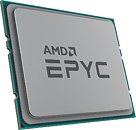
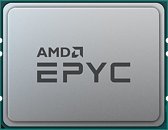
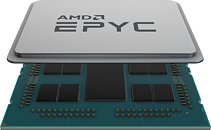
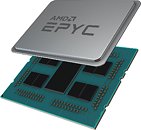
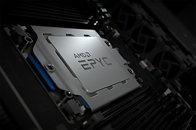
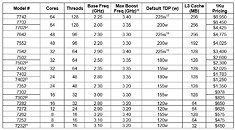
21 Comments on 2nd Gen AMD EPYC Processors Set New Standard for the Modern Datacenter
This is where AMD's vision and potential with this architecture is fully realized.
If anyone is interested in a great review: www.servethehome.com/amd-epyc-7002-series-rome-delivers-a-knockout/
Talk about Bullies, seriously. No wonder many dislike Intel's mindless tactics to try and prevent TRUE Innovation and Technological Advancements by AMD.